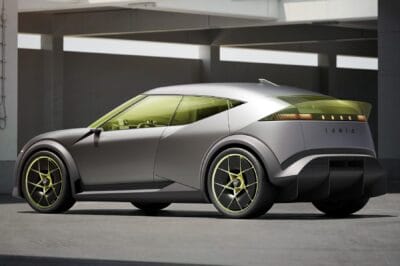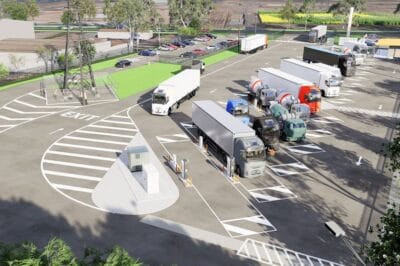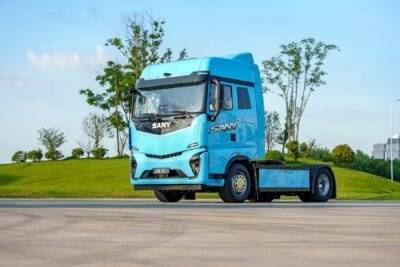Roger Alm from Volvo Trucks: Putting a price on CO2 will push the industry towards zero-emission
Volvo Trucks is making impressive strides in the electric truck market. Between January and July alone, 2,500 electric trucks were delivered in Europe, with over half of them produced by Volvo. When asked whether Volvo’s early investment in electric trucks has paid off, Roger Alm, President of Volvo Trucks, responded proudly: “We started our battery electric production in 2019. Now we have 4,200 battery-electric trucks out in commercial operations in 48 countries around the world.”
With a market share of 51% in Europe and 40% in North America, Volvo has positioned itself as a dominant player in the global market for electric trucks. The company’s commitment to sustainability goes beyond selling trucks, as Alm emphasised. “We are investing in the future. And we are then scaling up this volume together with our customers to make that business even more sustainable.”
Alm’s confidence in electric mobility is underscored by the largest launch in Volvo’s history, renewing their global product range. “We are taking on fuel consumption on combustion engines, reducing it by 10% for conventional trucks and 5-8% for cabover models,” Alm said, highlighting the company’s dual focus on both electric and fuel-efficient conventional vehicles. The electric range, meanwhile, is expanding from six to eight models, offering a broader portfolio to customers across all segments.
Overcoming challenges: infrastructure and incentives
However, scaling up electric trucks presents significant challenges. In Germany, for instance, government subsidies for electric trucks have ended. Alm is pragmatic about this development, recognising that collaboration across various sectors is crucial: “Of course, everybody needs to come together. It’s about working together in all dimensions to really scale up the volume of battery-electric trucks. But we also need the grid of electricity and charging infrastructure.”
Alm believes that one solution lies in pricing carbon emissions: “We need to put the price on CO2 to really get this to move.” While subsidies have been beneficial, Alm sees carbon pricing as the next logical step in accelerating the transition to electric trucks. This, he argues, would ensure that all players in the industry are competing on a level playing field, incentivising the shift to low-emission vehicles.
Despite these hurdles, Alm remains optimistic about the future. Volvo’s diverse approach includes not only battery-electric vehicles but also fuel cell technology and renewable fuel-powered combustion engines. “We need this wide range of different solutions,” he said, explaining that different technologies are suited to different use cases, such as long-haul transport where battery electric may not be sufficient.
A vision for the future of trucking
Volvo Trucks is not just focused on the present but is looking ahead to the future of trucking. Alm teased an upcoming model designed for long-haul routes with a 600-kilometre range. “We are putting in a new e-axle, a new technology into our model range,” he announced. It marks a significant step towards meeting the demands of long-distance transport, a segment where electric vehicles have traditionally struggled to compete.
When asked about the future of electric trucking, Alm’s vision is clear. “We are moving forward and will continue to move forward because we would like to create a better world to live in,” he said. Volvo’s leadership in electric trucks is not just about innovation; it is about a long-term commitment to a more sustainable transport system.
As for what’s next, Alm offered a hint: “Come here in two years, and then we will show you.”





1 Comment